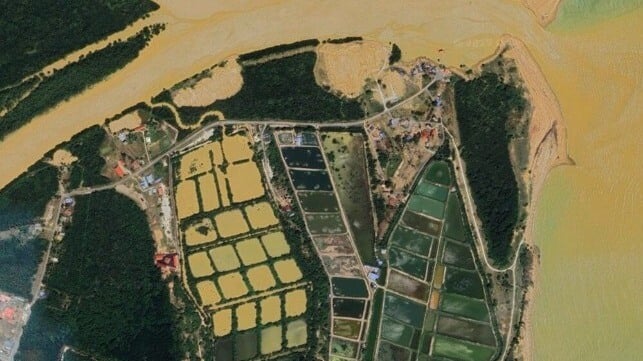Malaysia Fast-Tracks Investment in its Shipbuilding Sector

Malaysia is doubling down on shipbuilding with two key investment milestones achieved last week. At the forefront is Malaysia’s Pahang State, which is betting big on maritime development. Last week, Pahang signed a lease agreement with Teroka Majubina Holdings for the development of the Tanjung Agas Hybrid Shipyard Complex in Pekan, a small town on Peninsular Malaysia’s east coast.
The $18 billion project will be implemented in three phases in an area covering 1,000 acres. The construction of the project is expected to begin in eight months. The first phase will involve developing a green vessel recycling facility; the second component will include a shipbuilding center, providing ship construction and maintenance services; and lastly, the third phase includes building oil and gas storage facilities.
“With the establishment of the shipyard complex, Pahang will emerge as a regional maritime hub, providing competitive services in shipbuilding, green ship recycling and oil and gas hub,” said Wan Rosdy, Head of Pahang State.
The state is also implementing a similar project in the Gebeng industrial area, the Kuantan Maritime Hub (KMH), located about 35 miles to the north of Pekan. The $500 million project is being developed by Muhibbah Engineering and is scheduled for completion in 2034.
The KMH project covers a 500-acre site, with some parts reclaimed from the sea. The hub is expected to host industries ranging from commercial shipbuilding and ship repair to defense and technical training.
These flagship projects are important for Malaysia to retain a long-term standing in the global shipbuilding sector, according to the Malaysian Investment Development Authority’s CEO, Sikh Shamsul Ibrahim.

that matters most
Get the latest maritime news delivered to your inbox daily.
“Malaysia should always remain vigilant of rising competition from lower cost yards in neighboring economies such a Vietnam and Indonesia. We should start focusing on reducing reliance on foreign automation tools, by approaching local robotic manufacturing in Malaysia, which could build a whole new automated system integration to improve productivity in our shipbuilding landscape,” added Sikh Shamsul.
As of June, the authority said it has approved shipbuilding and ship repair sector investments worth over $230 million, showing sustained interest by the private sector to invest in the Malaysian shipyard sector.
